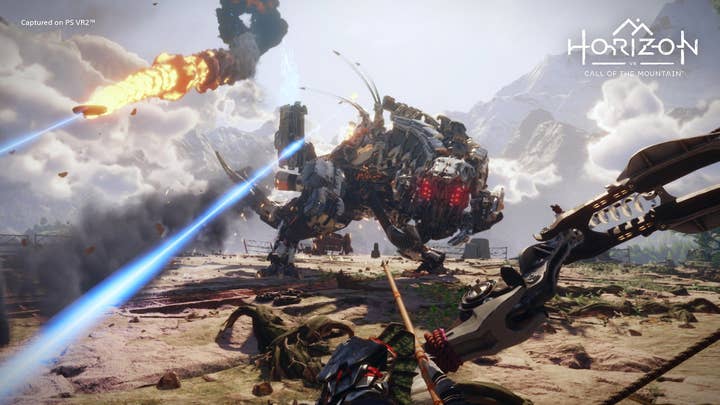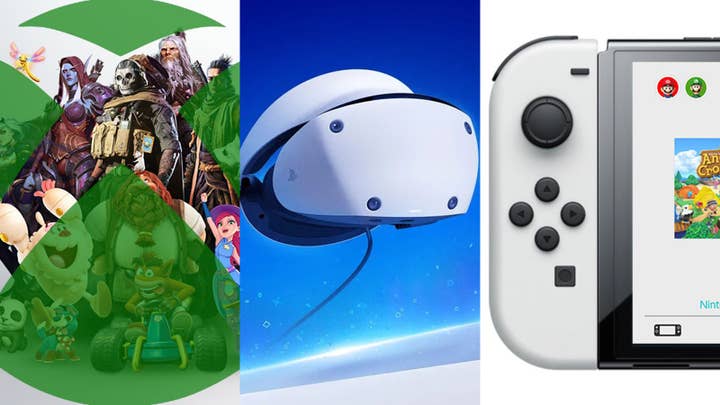Looking back to look forward: 2023 is shaping up to look familiar | Opinion
The biggest stories of 2022 still lack any resolution
The end of the year is a somewhat arbitrary line in the sand, but it's a good moment to take stock of where we stand – stepping back and taking a somewhat wider view than the usual day-to-day, week-to-week rush demands.
Most years, when the time comes to write one last column before the year's end, I look back at last year's final column. Sometimes, that becomes an exercise in seeing how rapidly things have changed; other times, what's striking is how little our discussions about various key issues have moved on. Given the tradition of making some predictions for the coming year, there's also often a side-serving of humble pie in this process.
Last year's final article predicted that unionisation would be one of the biggest stories of 2022 – and while I don't think that claim entirely stacks up, as the announcement of Microsoft's intent to acquire Activision Blizzard in January soon turned attention away from the unionisation efforts that had been ongoing in response to Activision's workplace problems, there's no doubt that unionisation overall remains a live issue in the industry.
Progress has been slow, but the sense of inertia building behind the movement remains strong – and the games business isn't alone in this, with workers in the broader tech industry, historically hugely resistant to unionisation efforts, finally starting to come around to the benefits of organised labour in response to mass layoffs at tech giants.
It's unlikely the Microsoft/ABK deal will be concluded until well into 2024. Bad news if you're a) Microsoft or b) sick of hearing about it
Looking at the other stories that were preoccupying us in December 2021, though, there's a lot of familiarity. Frustration at ongoing shortages of console hardware, check; wondering about the depth of Sony's commitment to its VR platform, check; all sorts of companies pratting about with 'the Metaverse' without ever allowing themselves to be pinned down on what they think that actually means, check, check, check.
No matter how many of the industry stories of today were also the industry stories of late 2021, though, 2022 did have the capacity to surprise – with the aforementioned Activision Blizzard acquisition being arguably the biggest surprise of the year, an almost $70 billion monster of a deal that would reshape the commercial landscape of the entire industry. In theory, at least; in practice, the deal hasn't actually happened yet, with the 11 months since its announcement being filled with back-and-forth discussions with competition authorities in various countries, much of the content of which has been made public and has made for interesting reading over the course of the year.
Here's one prediction I don't think I'll need to eat even a morsel of humble pie over, since it's rather plainly obvious; this acquisition is going to remain one of the biggest ongoing stories of 2023, and almost certainly of 2024. Microsoft had hoped to wrap things up by June, but the deal is now facing a serious legal challenge in the USA and may yet face similar challenges in the UK and Europe.
The most likely scenario remains that the deal will go through; the example of the Disney-Fox merger shows that it's possible to structure an acquisition of this scope and impact in a way that satisfies competition authorities' concerns. But there will be concessions made along the way, and Microsoft's recent promise to keep Call of Duty available on Nintendo and Steam platforms for a decade (with a similar olive branch presumably being offered to Sony) is really just going to be table stakes in these negotiations.

It's especially interesting that the US FTC is clearly nonplussed with what it regards as a breaking of promises made regarding the acquisition of Zenimax; that suggests they'll take a hard line on the concessions they want from Microsoft, and while the courts may of course not side with their viewpoint, that's likely just a preview of how the UK and EU are going to approach the deal. All of this stretches out the timescale dramatically. It will be August before the US challenge gets a court hearing, and unless things go very smoothly indeed, it seems unlikely that this deal will be concluded until well into 2024, which is bad news if you're either a) Microsoft or b) very sick of hearing about the twists and turns of this deal already.
It's worth noting that there are legal restrictions on how much the companies can coordinate their efforts prior to the deal being approved; there's some basic planning they can do for the merger, but ABK has to continue to act independently. That means that the actual integration of these businesses likely won't even start until 2024 – and it goes without saying that successfully incorporating a $70 billion publisher into the existing Xbox structure will take quite a lot of time to accomplish. The current console generation is likely to be entering its twilight before the merger process actually wraps up in a meaningful way and starts to have a competitive impact on the Xbox business.
If that's going to be the dominant story for Microsoft in the coming year, Sony and Nintendo both seem likely to have more hardware-focused years. Sony's PSVR2 is its most high profile launch in the early part of the year, and it will be closely watched to see just how committed the company is to the VR platform. The launch line-up looks as solid as anyone could hope, at least, and the promise of substantially upgraded visual fidelity and much easier setup could make this into a much more attractive mass-market prospect than its predecessor.
Some semblance of supply chain normality may also let Nintendo finally push out a full-blooded update to the Switch hardware
Sony is also likely to see supply chain issues for PS5 continuing to gradually resolve into 2023. Might next year be the year when stock of PS5 and XSX consoles finally stays on shelves for more than five minutes? Probably not until the back half, but it's on the cards at least – and that return to some semblance of supply chain normality may also let Nintendo finally push out a full-blooded update to the Switch hardware. The company has seemingly been sitting on an updated model for a couple of years because supply problems meant any launch would be a damp squib in commercial terms (and it's also hard to justify launching new hardware when your old system is consistently sold out).
That will be a particular relief to analysts who have been predicting new Nintendo hardware for a couple of years, and not looking great when the company proceeded to launch nothing of the sort (aside from the far less notable OLED screen upgrade). From what I can tell, the reports have actually been right all along – but Nintendo keeps choosing to push back its update schedule until the supply chain stars align.
What else are we likely to end up talking about through 2023? One other topic that some of you may be sick of hearing about is the loot box discourse, and the interminable trickle of news about various regulatory and legislative investigations of this business model around the world. If you're in that camp, bad news – it's not going to go away at any point in 2023.

Legislative wheels grind slowly, and with so many countries interested in this issue, there will be no quick resolution. It's possible, however, that the story will become less relevant over time simply because more and more companies choose to avoid this monetisation path. The steady flow of news about regulation in various markets may be all it takes to push many companies away the concept, meaning that loot boxes and other gambling-esque mechanisms will die the death of a thousand small cuts rather than receiving a single fatal blow.
My wildcard guess is that 2023 will see another major company launch a serious rival to Game Pass, most likely Amazon or Valve
Let me finish my predictions for the coming year's news with a wildcard – which probably means I'm just setting up next year's helping of humble pie here, of course. My wildcard guess is that 2023 will be the year when another major company decides to launch a serious rival to Game Pass. The most likely candidates are Amazon and Valve, with Epic as a third-place guess, but a major firm could equally come out of left field entirely.
That's my bet simply because it stretches credulity to me that every major tech and entertainment company (aside from Sony, but its offering remains restricted to its own platforms – for now) would be willing to sit back and let Microsoft go about creating and utterly dominating what is likely to become the dominant distribution paradigm for games. Memories are short, but many people won't have forgotten how Valve capitalised on the sluggish pace of traditional publishers moving to digital distribution and came from absolutely nowhere to establish itself as the totally dominant player in that market. Microsoft doing the same thing for game subscriptions may be inevitable, but I would be surprised if no company at least tries to create a credible rival subscription offering.
As ever, of course, what we can all really look forward to is whatever January bombshell renders all of this prognostication outdated and irrelevant. Until then, I hope you all have a peaceful and happy time over the holidays.
See you in 2023.

